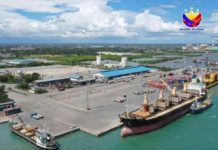
[av_textblock size=” font_color=” color=” av-desktop-hide=” av-medium-hide=” av-small-hide=” av-mini-hide=” av-medium-font-size=” av-small-font-size=” av-mini-font-size=”]
[/av_textblock]
[av_one_full first min_height=” vertical_alignment=” space=” custom_margin=” margin=’0px’ padding=’0px’ border=” border_color=” radius=’0px’ background_color=” src=” background_position=’top left’ background_repeat=’no-repeat’ animation=”]
[av_heading heading=’PRO-6 welcomes use of body cameras ‘ tag=’h3′ style=’blockquote modern-quote’ size=” subheading_active=’subheading_below’ subheading_size=’15’ padding=’10’ color=” custom_font=” av-medium-font-size-title=” av-small-font-size-title=” av-mini-font-size-title=” av-medium-font-size=” av-small-font-size=” av-mini-font-size=” admin_preview_bg=”]
BY RUBY P. SILUBRICO and PRINCE GOLEZ
[/av_heading]
[av_textblock size=” font_color=” color=” av-medium-font-size=” av-small-font-size=” av-mini-font-size=” admin_preview_bg=”]
ILOILO City – The Police Regional Office 6 (PRO-6) welcomed the suggestion that policemen wear body cameras during antidrug operations.
“For the sake transparency and police integrity, we are amenable to that,” said Superintendent Gilbert Gorero, PRO-6 spokesperson.
Senate Bill No. 1576 (Police On-Body Cam Act) requires policemen and personnel of the Philippine Drug Enforcement Agency (PDEA) to record their antidrug operations using body cameras.
“This is good not only for the police but for drug suspects, too. What happens during the operation would be fully recorded,” said Gorero.
The recordings would be reviewed and could be used as evidence should there be questions about the operation, explained Sen. Sherwin Gatchalian, proponent of the Senate bill.
Policemen could use the recordings to defend themselves should they be hauled to court or to the National Police Commission by suspects making false allegations against antidrug operations, said Gorero.
The video recordings of policemen’s body cameras would be treated as “concrete evidence” to prosecute either the erring policemen or the drug suspect, according to Gatchalian.
“Ako favor gid. We want transparency. We have to protect our integrity and to erase doubts on police’s antidrug operations,” said Senior Superintendent Henry Biñas, Iloilo City police director.
Gatchalian said body cameras could help clear police officers falsely accused of abuses during antidrug operations.
“Usually, suspects claim the recovered illegal drugs were planted. But if our operatives have body cameras, the suspects could not deny anymore,” said Biñas.
In suggesting the use of body cameras, Gatchalian lamented that “scalawags are dragging down the reputation of the entire police organization.”
“The body camera policy will separate the good cops from the bad, and people will be able to sleep easier at night knowing that there is an efficient system in place to hold bad cops accountable for abusing their authority,” he said.
Gatchalian called as “absolutely absurd” the statement of Philippine National Police’s Drug Enforcement Group director Chief Superintendent Joseph Adnol that there was no need to wear body cameras during antidrug operations because “our camera as policemen is God.”
The fear of God alone is not enough to stop drug-related killings allegedly committed by policemen, stressed the senator.
Body cameras, said Gatchalian, could help address police impunity and hold “dirty cops” accountable for their crimes.
In Memorandum Order No. 17 issued last month, President Rodrigo Duterte directed the Philippine National Police to “resume providing active support to the PDEA in the conduct of anti-illegal drug operations.”
In Camp Crame, the headquarters of the national police, Director General Ronald Dela Rosa reminded policemen to observe extreme caution, and focus on their ranks’ internal cleansing.
In ordering the police and other law enforcement agencies – National Bureau of Investigation, Armed Forces of the Philippines, Bureau of Customs, and Philippine Postal Corp. – to rejoin in the war against illegal drugs, the President noted that while PDEA made significant strides, the agency “has been seriously hampered in performing its huge mandate by lack of resources, specifically agents, and operatives who can penetrate drug-infested areas down to the municipal and barangay levels.”
Duterte’s memorandum likewise said there had been a resurgence of illegal drugs as well as crimes committed since the police and the other law enforcement agencies yielded to PDEA the conduct of all anti-illegal drugs operations./PN
[/av_textblock]
[/av_one_full]



